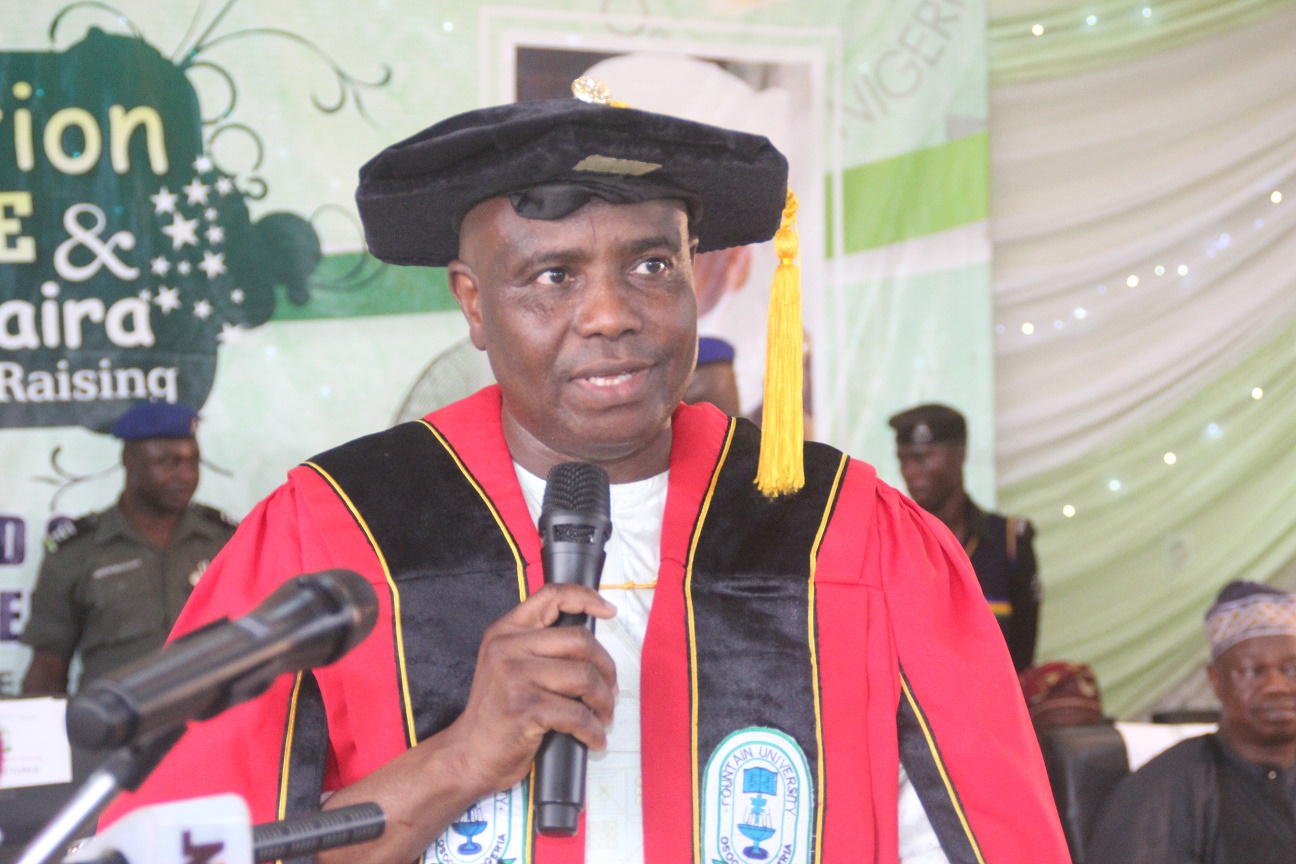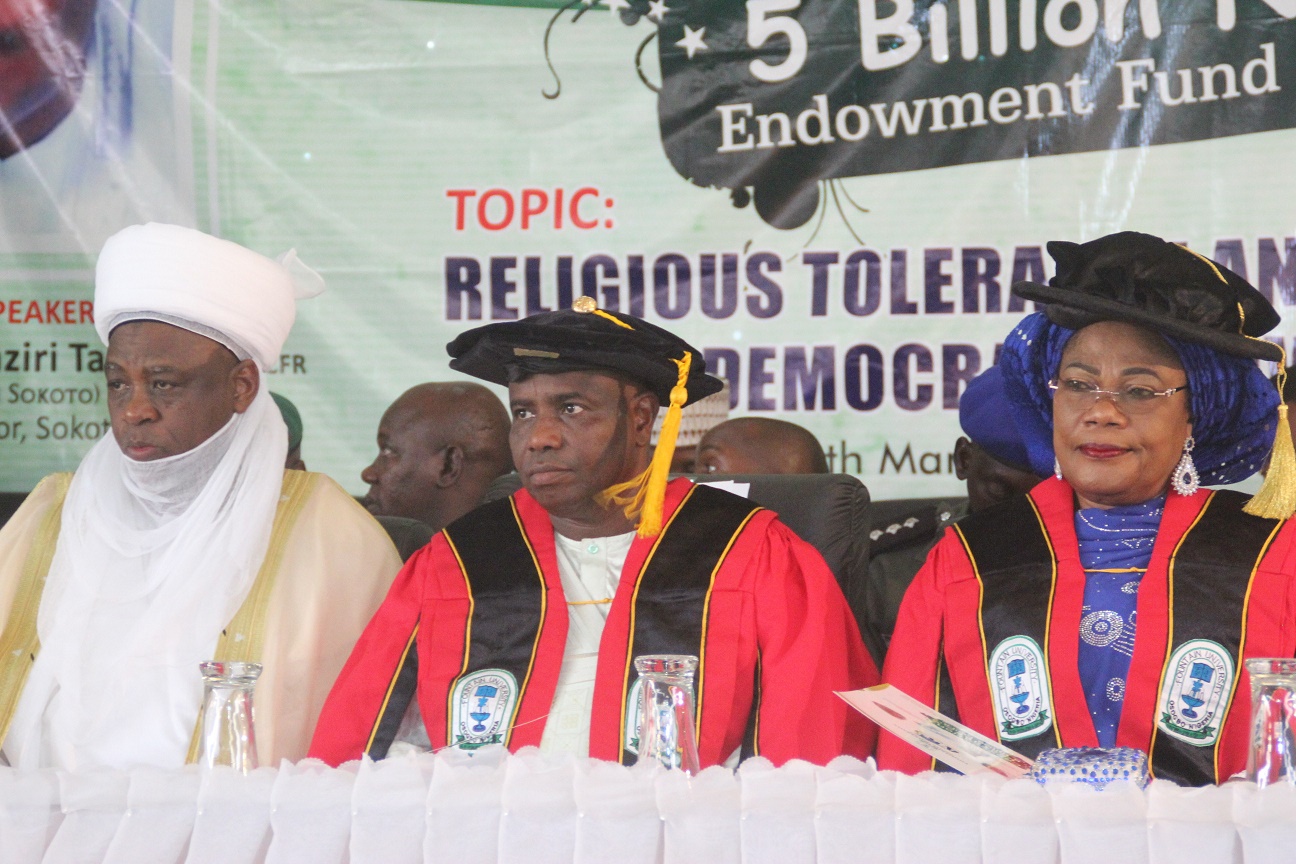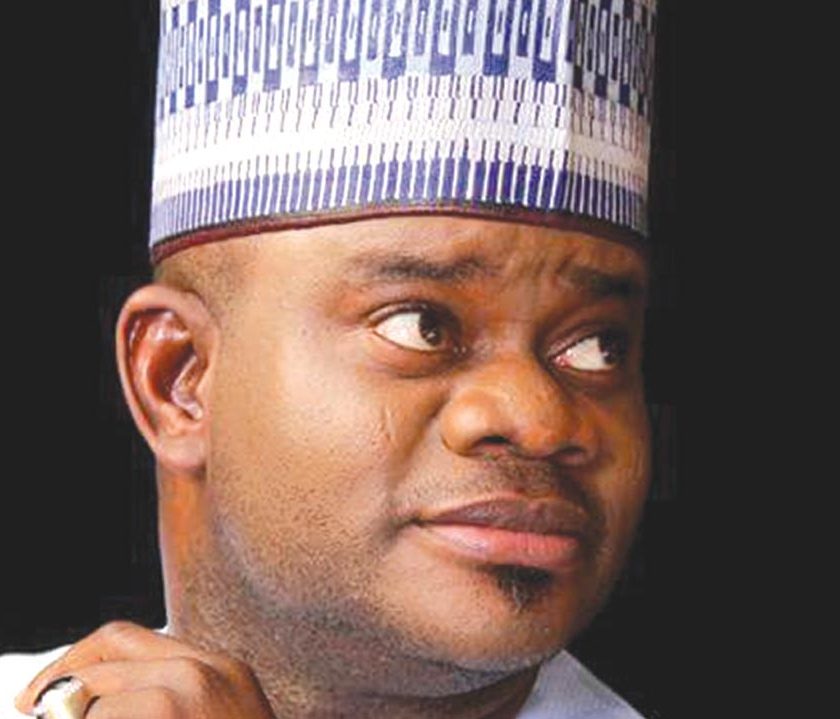CONVOCATION LECTURE OF FOUNTAIN UNIVERSITY, OSOGBO, DELIVERED BY RT. HON AMINU WAZIRI TAMBUWAL CFR, (MUTAWALLEN SOKOTO), GOVERNOR, SOKOTO STATE ON MONDAY, MARCH 28, 2016
INTRODUCTION

It gives me great pleasure to have the privilege of addressing this distinguished audience. I am immensely grateful to the Governing Council, Management and staff of this highly esteemed university for giving me a worthy platform to share my thoughts with you on this auspicious moment of Fountain University’s 4th & 5th Convocation Ceremony.
When I was approached to deliver this Convocation Lecture, I readily agreed, for it is a great honour to be associated with educational endeavours. It is also an opportunity to interact with men and women of integrity and academic excellence. Undoubtedly, the whole of human civilisation was built by intellectuals and other exemplary men and women of wisdom and intellect. Their sustained efforts steer institutions that promote good governance and socio-economic development. In this respect, our highly placed Fountain University, Oshogbo, is certainly a shining example of a citadel of learning that is being driven by the lofty ideals of a reputable religious organisation – Nasrul-Lahi-L-Fatih Society of Nigeria (NASFAT).
In the letter appointing me to serve as the Guest Lecturer at this ceremony, the organisers so benevolently allowed me to choose a topic that touches on issues of interest to our national life. Accordingly, and taking into cognizance the background and foundation of the Fountain University, as well as the prevailing reality of our times, I decided to speak on the topic: “Religious Tolerance and the Challenges of Democratic Governance in Nigeria”.
My choice of this topic is anchored on the conviction that nations just don’t happen by historical accident. Rather, they are built by men and women with vision and high sense of resolute. Building a polity, therefore, entails avowed determination and sacrifice to address the incessant tensions and conflicts, which tend to mar our aspirations for building a united and prosperous nation.
I will initially discuss the challenges of nationhood with which Nigeria has been grappling. The second and third sections dwell on the causes of conflicts in the Nigerian polity, and the potentialities of democracy as a viable tool for good governance, the last section is a modest attempt to propose a way forward towards religious harmony and tolerance in the country. My humble experience as a legislator, a legal practitioner and a politician presiding over the executive affairs of the government of Sokoto State is likely to influence the direction of my lecture. So, bear with me!
The Nigeria Project
 The project for the construction of Nigeria’s nationhood commenced with the amalgamation of Northern and Southern Protectorates of the Niger in 1914 and ended with Nigeria’s Independence in 1960. As in all cases of nations across the globe, the challenge has not been one of constituting the nation, but of preserving and sustaining what, in the case of Nigeria, could be said to have been established, fait accompli. Invariably, all nations possess unique challenges in sustaining their nationhood. Some survived, while others could not pass the litmus test. For instance, the United States had to go through a bloody civil war from 1861 – 1865. However, India broke away after its independence of 1947. The issue of Bangladesh is a case in history. The most recent example is what happened or is rather happening to Sudan. Certainly, “it is one thing to construct and secure a nation; it is another to sustain it”, as one scholar recently noted.
The project for the construction of Nigeria’s nationhood commenced with the amalgamation of Northern and Southern Protectorates of the Niger in 1914 and ended with Nigeria’s Independence in 1960. As in all cases of nations across the globe, the challenge has not been one of constituting the nation, but of preserving and sustaining what, in the case of Nigeria, could be said to have been established, fait accompli. Invariably, all nations possess unique challenges in sustaining their nationhood. Some survived, while others could not pass the litmus test. For instance, the United States had to go through a bloody civil war from 1861 – 1865. However, India broke away after its independence of 1947. The issue of Bangladesh is a case in history. The most recent example is what happened or is rather happening to Sudan. Certainly, “it is one thing to construct and secure a nation; it is another to sustain it”, as one scholar recently noted.
The historic amalgamation of Nigeria has often been attributed as the foundation of the rancorous relationship between the two regions of Nigeria. Northern Nigeria consisting of three geopolitical zones with largely Muslim p




